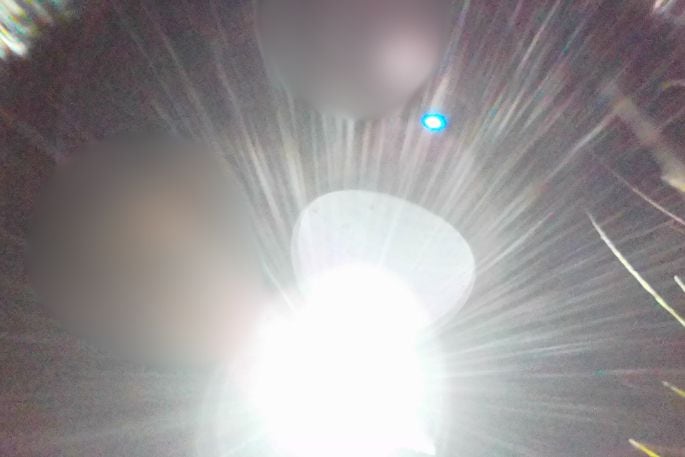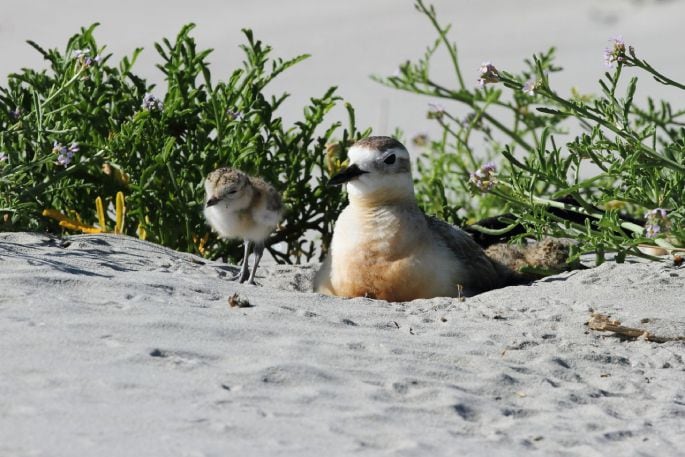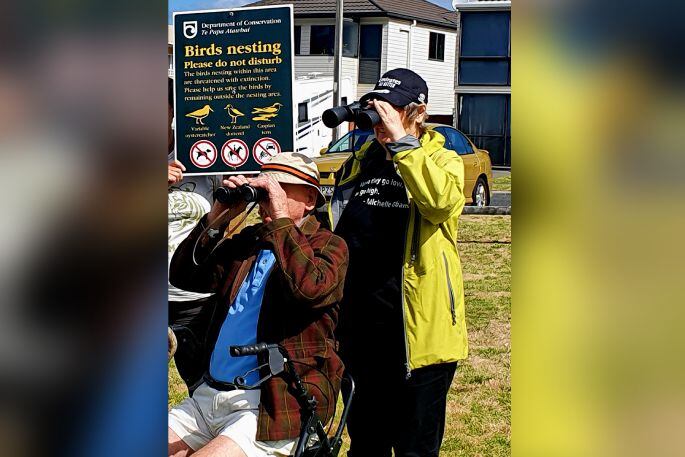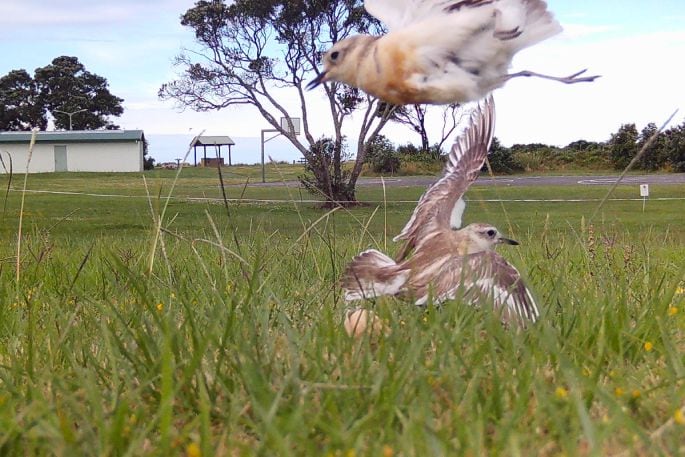The Waihī Beach community is in shock after a series of vandalism incidents over the summer, culminating in the trampling of a dotterel breeding ground.
Camera footage has reportedly captured two individuals removing New Zealand dotterel eggs from a nest at Brighton Reserve just before midnight on January 1, 2025, sparking fears that human interference was the cause of the devastation.
Brighton Reserve, which is a large, grassed greenbelt area off the beach, borders the sand dunes, and has fenced cordons in place to protect the dotterel nesting area.
Volunteers have since reported that all dotterel nesting sites along Waihī Beach have been raided, with no signs of typical predator activity, such as broken eggshells and fragments.
Surveillance footage is currently being reviewed as part of an ongoing investigation to track down the individuals, who may have information critical to the inquiry, said Waihī Beach environmental co-ordinator Pippa Coombes.
Coombes expressed her heartbreak over the incident, noting that this isn’t the first time the community has faced vandalism during the festive season.
“Over the last three years, Dot Watch has experienced vandalism during this same period - over Christmas and New Year, when baches are full of visitors,” Coombes said.
Dot Watch Waihī Beach is a community group of like-minded individuals, spearheaded by former prime minister Helen Clark, and is dedicated to finding ways to ensure people become more aware of the dotterels and more respectful of them.

Redacted faces of two people who allegedly removed eggs from a dotterel nest at Brighton Reserve, Waihī Beach.Photo/Supplied.
NZ dotterels are nesting on five sites between Brighton Reserve and Bowentown Reserve and haven’t been very successful the last few seasons with the loss of eggs and chicks, even with fencing in place.
Coombes said three years ago, a 24-hour-old dotterel chick was deliberately trampled at Brighton Reserve and found dead by a retired volunteer and their grandkids.
“Last year, in the early hours of Christmas morning, the entire nesting site was vandalised - cordons ripped out, eggs destroyed, and a newly hatched chick disappeared. And now this. It’s an alarming pattern, and the offenders need to be stopped.”
The New Zealand dotterel is an endangered species, with fewer than 2500 individuals remaining in the wild, making them even more vulnerable than the brown kiwi, which is classified as nationally vulnerable.
The birds rely on critical areas like Waihī Beach to breed, and volunteers have dedicated countless hours working tirelessly to protect them from predators such as rats, stoats, and hedgehogs.

Dotterel and chicks on a nest at Waihī Beach. Photo/Supplied.
The realisation that human interference may be the primary threat has deeply shaken the community, said Coombes.
Lyla Hudson, a 16-year-old Dot Watch volunteer who helps maintain predator traplines at Brighton Reserve, also expressed her anguish at the incident.
“We’ve spent the last six months ensuring predators don’t eat the eggs or chicks, only to find that the real predators may be humans - they could be my age,” Hudson said.
“It’s unthinkable. Hundreds of volunteer hours go into protecting these highly endangered birds, and now this - the eggs were due to hatch the following week.”
Former New Zealand prime minister Helen Clark, a staunch conservation advocate, also condemned the destruction.
“The threats to New Zealand dotterels have been overwhelming, not only from introduced mammal predators, dogs, cats, and avian species, but human interference,” said Clark.
“Protecting these birds has been a constant battle, and to see what appears to be repeated human vandalism added to these challenges is shocking.”
Helen Clark’s father, George Clark, a lifelong conservation enthusiast, 102, also voiced his dismay.
“I have been visiting Waihī Beach since I was a child. Our native species here are fighting a tough battle against predators, and it’s only thanks to the dedicated efforts of local people that the New Zealand Dotterel has any chance of surviving,” George Clark said.
“This looks to be an atrocious act of disregard toward our precious species. To lose eggs that were so close to hatching is soul destroying.”

Former NZ Prime Minister Helen Clark with her father George Clark at Brighton Reserve. Photo/Supplied.
During the breeding season, Brighton Reserve and other key nesting areas are cordoned off to give the dotterels the best chance of survival.
“However, incidents like this undermine the tireless efforts of volunteers and jeopardise the survival of these endangered natives,” Coombes said.
Disturbing or destroying protected wildlife and their nests is a criminal offence under the Wildlife Act 1953, with penalties including hefty fines of up to $100,000, and possible prison sentences.
The Waihī Beach community is urging anyone with information about the incident to come forward, emphasising that the protection of New Zealand’s native species is a shared responsibility.
Despite the tragic events, the community remains resolute in its commitment to protect the dotterels.
“Every effort counts in ensuring their survival.”
A spokesperson for the Department of Conservation’s National Compliance Team said they’re actively investigating the case and have appealed for public assistance. Anyone with relevant information is encouraged to contact 0800 DOC HOT and reference case CLE-8301.



3 comments
Why?
Posted on 10-01-2025 16:48 | By Batch
...."Surveillance footage is currently being reviewed as part of an ongoing investigation to track down the individuals, who may have information critical to the inquiry, said Waihī Beach environmental co-ordinator Pippa Coombes....."
So why redact the faces of the (possible) culprits..????
Despicable
Posted on 11-01-2025 05:41 | By ConcernedCit
Why are the faces of these people blurred? If they or people who recognise them, are urged to come forward they can explain how they came to be on the camera.
Secondly fencing; a blanket ban on all visitors to that area..no camping or use of the area whatsoever until culprits are dealt with and the birds are settled in place again. Practice of too soft on crime and as always the volunteers who do all the hard work have little control..those who are careless or destructive will not adhere to a mere ⚠️ sign posted.
have a look
Posted on 11-01-2025 16:59 | By Delboy
why not show their faces, if they are innocent they will not have a problem answering a few questions when found!
Leave a Comment
You must be logged in to make a comment.